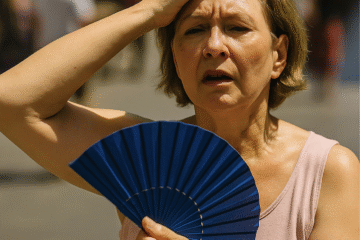Cosmetic Tourism: Affordable Transformations or Mental Health Risk?
Introduction
Cosmetic tourism has become a global phenomenon, attracting millions of individuals to destinations like South Korea, Thailand, Turkey, and Colombia for affordable, high-quality aesthetic procedures. The global medical tourism market was valued at approximately $24.14 billion in 2023 and is projected to reach $137.71 billion by 2032, with cosmetic tourism being a significant driver (Fortune Business Insights, 2023).
Countries like South Korea, renowned for facial surgeries, and Turkey, a leader in hair transplant procedures, attract thousands of international patients each year. In 2022, South Korea hosted 248,000 medical tourists, a significant increase from 146,000 in 2021 (Korea Herald, 2023). Similarly, Turkey performs over 250,000 hair transplants annually, establishing itself as a global hub for hair restoration (Clinics on Call, 2023). These destinations offer procedures at 50-70% lower costs than in Western countries, making them highly appealing to individuals seeking transformative results.
Disclaimer:
This article is for informational purposes only and does not endorse or encourage undergoing cosmetic procedures. Individuals considering such treatments should consult with qualified healthcare professionals to assess the risks and benefits, especially concerning mental health conditions like BDD.
My Experience at Bangkok Airport
During a recent trip through Bangkok’s Airport, I experienced firsthand how normalized cosmetic procedures have become in these regions. Due to a persistent cold, I placed a wet tissue under my face mask to keep my nostrils moist during the flight. At every airport checkpoint, staff assumed I had undergone a recent nose job. One staff member even consulted her supervisor before asking about my “procedure,” likely to assess whether I was fit to fly post-surgery.
This interaction highlighted the societal normalization of cosmetic surgery in destinations like Thailand and underscored the assumptions tied to physical appearance in areas synonymous with medical tourism.
The Intersection of Cosmetic Tourism and Body Dysmorphic Disorder
While cosmetic tourism offers transformative opportunities for physical enhancement, it also raises significant concerns about mental health, particularly for individuals suffering from body dysmorphic disorder (BDD).
BDD is a serious mental health condition characterized by obsessive preoccupation with perceived physical flaws, which are often minor or entirely imagined. These perceived imperfections cause significant emotional distress and impair daily functioning. People with BDD frequently experience:
- Obsessive Focus: Continuous fixation on one or more perceived flaws in their appearance, such as facial asymmetry, skin texture, or body shape.
- Compulsive Behaviors: Repeated grooming, mirror-checking, or complete avoidance of mirrors; excessive use of makeup or clothing to hide perceived flaws.
- Social Withdrawal: Avoidance of social or public situations due to shame or fear of judgment.
- Emotional Distress: High levels of anxiety, depression, and dissatisfaction with life related to their appearance.
Studies estimate that 7% to 15% of patients seeking cosmetic surgery are affected by BDD (International OCD Foundation, 2023), with some analyses suggesting the prevalence may be as high as 15.04% among plastic surgery patients (Ribeiro, 2017). However, surgical interventions rarely improve symptoms because the root cause lies in distorted self-perception rather than physical imperfections.
Why Cosmetic Tourism Appeals to Individuals with BDD
Cosmetic tourism’s affordability, accessibility, and reputation for high-quality results intensify its appeal to individuals with BDD. Destinations like South Korea, Turkey, and Thailand are known for quick and affordable procedures, often bypassing the stringent mental health screenings required in some Western clinics (Fortune Business Insights, 2023). For those with BDD, the promise of a “perfect” appearance can drive impulsive decisions to seek surgery abroad.
How Cosmetic Tourism Amplifies Risks for Individuals with BDD
1. Unrealistic Expectations
Individuals with BDD often believe that altering their physical appearance will alleviate their emotional distress. However, cosmetic treatments almost never improve BDD symptoms. The dissatisfaction remains, leading to further emotional and mental struggles (International OCD Foundation, 2023).
2. Lack of Psychological Evaluations
Many cosmetic clinics focus exclusively on physical results, neglecting to assess the patient’s mental health readiness. Studies have shown that even experienced surgeons often fail to recognize BDD in patients seeking cosmetic treatment. Without proper psychological evaluation, patients with BDD are left unprotected and at higher risk of dissatisfaction (SpringerLink, 2023).
3. Harmful Cycle of Dissatisfaction
For individuals with BDD, cosmetic surgery rarely addresses the root causes of dissatisfaction. Instead, dissatisfaction persists or shifts to new perceived flaws, leading to repeated procedures and increasing emotional distress. This cycle often exacerbates anxiety, depression, and social withdrawal (IOCDF, 2023).
The Need for Awareness and Safeguards in Cosmetic Tourism
The growing popularity of cosmetic tourism underscores the need for greater awareness of mental health concerns and safeguards for patients, particularly those with BDD. Clinics and providers must prioritize mental health readiness by:
- Mandating Psychological Screenings
Clinics and providers should conduct thorough psychological evaluations to identify patients who may not be mentally prepared for surgery. Screening for BDD can help protect vulnerable individuals from pursuing procedures that are unlikely to address their concerns (IOCDF, 2023). - Providing Mental Health Support
Access to counseling or therapy can help patients manage underlying emotional challenges and develop healthier coping strategies. Mental health professionals can work alongside cosmetic surgeons to provide comprehensive care (Ribeiro, 2017). - Setting Realistic Expectations
Educating patients about the limitations of cosmetic procedures is critical. Providers should emphasize that while surgery can enhance physical appearance, it is not a cure for deeper psychological issues. Managing expectations can reduce the risk of dissatisfaction and prevent repeat procedures (Fortune Business Insights, 2023).
Why Safeguards Are Essential for Patients with BDD
For individuals with BDD, cosmetic surgery often exacerbates their condition rather than alleviating it. Unrealistic expectations and the absence of psychological screenings can lead to a harmful cycle of dissatisfaction, with patients pursuing additional surgeries in search of unattainable perfection. This can worsen mental health outcomes, including heightened anxiety, depression, and social isolation (International OCD Foundation, 2023).
A Balanced Approach for Better Outcomes
The cosmetic tourism industry has a responsibility to address both physical and mental health needs. By implementing these measures, clinics can ensure that individuals seeking physical transformation are supported in their journey toward true self-acceptance. For those with BDD, this balanced approach is essential for promoting healthier outcomes and breaking the cycle of dissatisfaction.
Top Cosmetic Tourism Destinations
Cosmetic tourism has flourished in several countries, each offering specialized procedures, advanced techniques, and affordable pricing. Below is an overview of the leading destinations and their unique contributions to the industry.
1. South Korea
- Specialization: Renowned for advanced facial surgeries, including double eyelid surgery and rhinoplasty.
- Popularity: South Korea has the highest rate of plastic surgeries per capita globally.
- Reputation: Known for cutting-edge technology and highly skilled surgeons.
2. Thailand
- Specialization: Offers affordable procedures like breast augmentation, liposuction, and facial surgeries.
- Market Share: Thailand holds a 15% share of the global cosmetic surgery tourism market.
- Affordability: Competitive pricing attracts patients worldwide, particularly from Australia, Europe, and the U.S.
3. Turkey
- Specialization: Leading destination for hair transplants, particularly using advanced techniques like Follicular Unit Extraction (FUE).
- Reputation: Skilled doctors, modern facilities, and competitive pricing make it a global hub for hair restoration.
- Volume: Performs over 250,000 hair transplants annually.
4. Colombia
- Specialization: Body contouring procedures such as liposuction, Brazilian butt lifts, and breast augmentation.
- Market Share: Holds a 30% share of foreign cosmetic surgery patients, making it a key player in the global market.
- Trust: Colombia’s well-developed medical infrastructure and internationally trusted healthcare services drive its prominence.
Conclusion
Cosmetic tourism offers opportunities for physical enhancement but comes with significant risks, especially for individuals with underlying mental health conditions like BDD. It’s essential to approach such decisions with caution, prioritize mental well-being, a. d consult with qualified professionals before undergoing any cosmetic procedures.




0 Comments